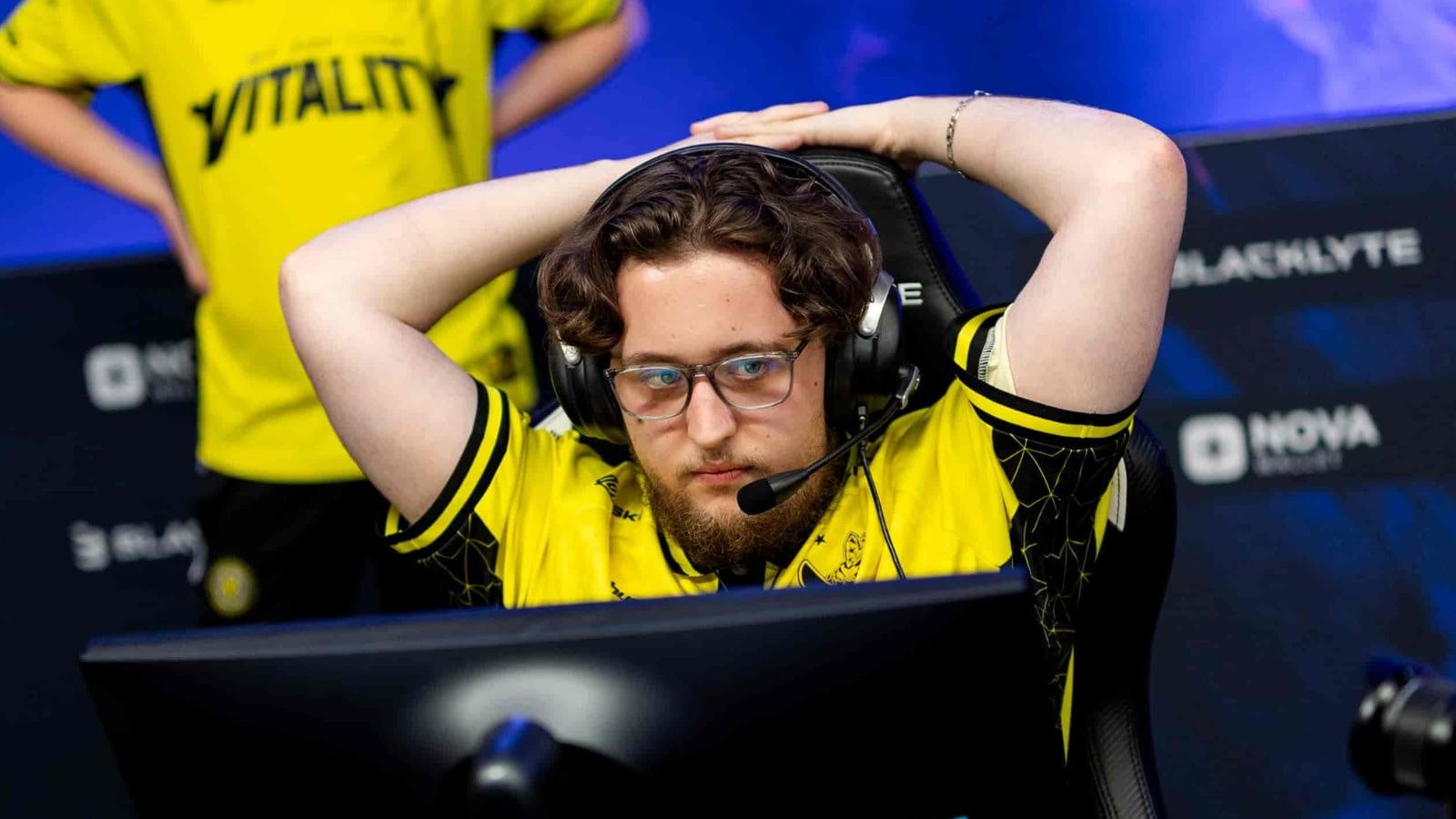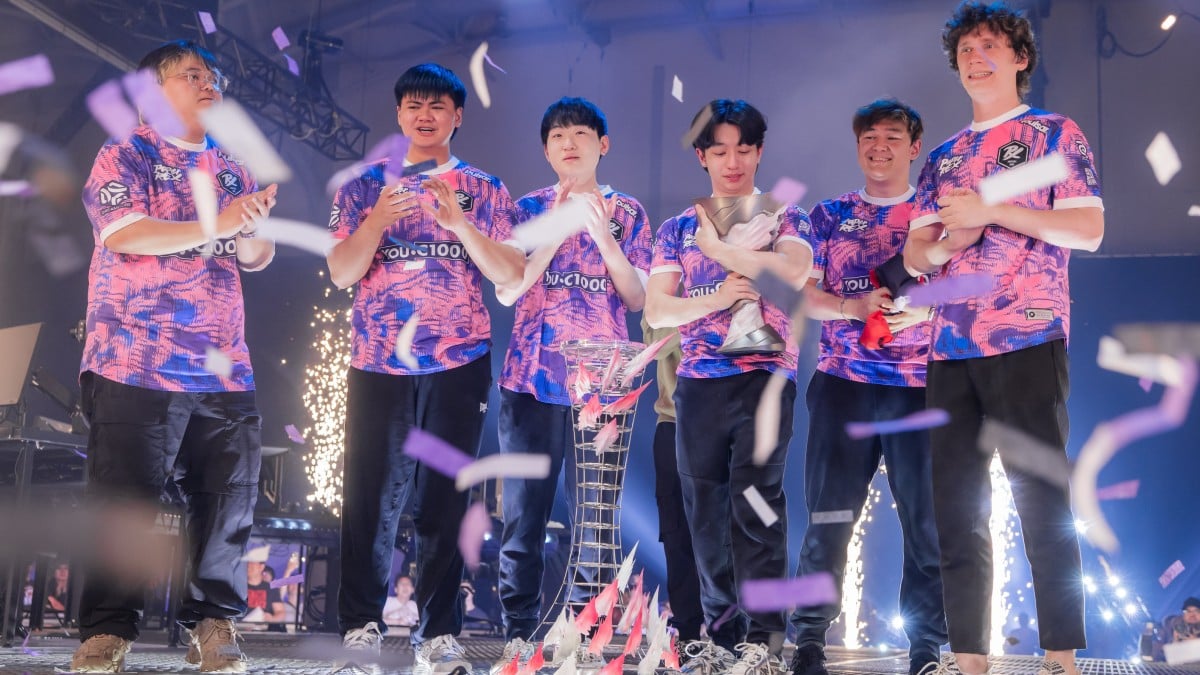
The Munsters is now streaming on Netflix.
Rob Zombie’s The Munsters reboot is a labor of enthusiastic love for the typically more violent, sickeningly grindhouse-forward horror filmmaker. Show The Munsters to unknowing audiences without the writer and director’s name attached, and not a single patron would connect the hellbilly superbeast with such a tender, slapstick, made-for-television nostalgia blanket stitched from patches of CBS’ not-so-terrifying 1960s sitcom. Zombie ditches psycho-sexual depravity, doesn’t turn bodies into grotesque trophies, and certainly skips any harsh language. The Munsters isn’t even a “contemporary” take on dustier material — Zombie makes the old-school Munsters feature he’s chased for decades (Munsters references in Zombie’s music are as easy as “Dragula”), and it seems he couldn’t be happier.
The issue? Everyone involved is having an absolute blast paying homage to The Munsters — but you have to adore The Munsters as much as Zombie does to ignore an otherwise sloppy display of filmmaking from green-screen ugliness to crafty workarounds.
Zombie avoids straight remaking The Munsters by exploring the origins of Herman’s (Jeff Daniel Phillips) creation, his introduction to Lily (Sheri Moon Zombie), and much to The Count’s (Daniel Roebuck) dismay, their severed head-over-heels romance. Transylvania plays backdrop for at least two-thirds of The Munsters, from back alley districts with neon nightclubs guarded by tin can robots to posh mummy-run cafes. Herman’s ascension to musical stardom as Transylvania’s hottest frontman — complete with his Punk Rods leather jacket — opens Lily’s eyes to the studly and studded Frankenstein creation of her dreams. Zombie proudly posted social media pictures of his film’s built-in-full 1313 Mockingbird Lane address all through production, but Munster Mansion hardly stars in The Munsters. This is about rom-com beginnings, spooktacular dad puns, and knee-slappers that’d hope to please live studio audiences.
There’s no denying the cast’s affection towards their caked-on transformations, starting first with graverobber and mad scientist Dr. Henry Augustus Wolfgang played by Zombie collaborator Richard Brake. Everyone’s favorite typecast scumbag gets to overenunciate and project himself like a West End theater actor with sophistication and snobbery on a PG level — his sidekick Floop (Jorge Garcia) provides the straighter routine in contrast. Brake’s broken a mold, much like Sheri Moon Zombie’s lovestruck vampiress who ditches any semblance of grunge from prior roles, or Jeff Daniel Phillips’ mastery of Herman’s famous foghorn-blasting laugh. Like, Daniel Roebuck is The Count (not yet Grandpa, no Eddie). Every actor exhibits playful giddiness just because they’re in The Munsters — even Elvira herself (Cassandra Peterson) — whether that’s going cross eyed for some wholesome ‘60s comedy or yucking through gags like gazing at “Playghoul” centerfolds.
Zombie milks the film’s Budapest, Hungary shooting location for magnificent castles and cobblestone market courts before ever proudly introducing Mockingbird Lane’s prime real estate behind iron gates. Cinematography bursts color in modern hues as Herman’s reptilian green skin and Floop’s flamingo-pink stage manager’s suit are saccharinely vibrant. The Munsters beams a cartoonish aesthetic from the way Zombie hypersaturates colors (witchy purples, toady greens, bloody reds), and stacks neon lighting rigs to bathe duller Transylvanian stonework. Zombie’s so enamored by gothically flamboyant costumes, thick makeup, and excessive decoration that he wants it all screaming at the audience — the purity of black-and-white is a distant memory.
Then, there are the rougher aspects of The Munsters.
Stretches are inexcusably cut-rate where Zombie’s team can’t fall back on macabre European locations.
Budget spend appears lopsided, given how digital effects look like they’re created with pennies by middle schoolers, from the rats scurrying under Herman’s platforms to horrendous green screen backdrops that plop Herman and Lily onto honeymoon beaches surrounded by sharks. The argument here is that The Munsters isn’t supposed to look dashingly pristine, whether that’s Herman wrestling a sea monster prop that’s limp rubber or Creature from the Black Lagoon bodysuits (‘sup, Uncle Gilbert?) that look like they were plucked from a Spirit Halloween store down the street (a Hungarian knockoff Spirit Halloween, in fact). Stretches are inexcusably cut-rate where Zombie’s team can’t fall back on macabre European locations. Colorization also does no favors when cosmetics smudge or latex masks don’t snugly fit, exposing the film’s frayed seams.
Even worse, despite Zombie’s on-set exuberance making The Munsters, there’s an off-beat nature about some of the comedy. Bless Tomas Boykin’s rapscallion personality as Lily’s werewolf brother Lester, but you can sense that something is out-of-rhythm in The Munsters because after certain jokes, Boykin pauses a beat — almost freezes — before continuing with the next punchline. Humor spans Lily’s unfortunate online dating experience with a hounddog Count Orlok to a once-relevant Car 54, Where Are You? callback (honoring Fred Gwynne), which highlights an oddly expansive demographic that I’m not sure ever unites extremes. Puns are continually the lowest hanging fruit — Herman’s “Munster” was inspired by Floop’s sandwich cheese — and are stuck in the ‘60s, which accomplishes an obvious recreation mission yet can land flatter than a pancake. Zombie sometimes feels out of his depth scripting G-rated comedy you’d chuckle at on syndication, primarily without Herman and Lily on screen.
Then again, I seesaw right back to the cemetery-dark sweetness of The Munsters. Phillips and Sheri Moon Zombie execute their monster-mashin’ romance with gigantic smiles on their pale faces. Zombie herself channels premiere Lily actress Yvonne De Carlo as she bops along with Herman’s rebellious punk rocker vibe, while Phillips hones the physical comedy of Herman’s boot-clopping lumber. Both actors sell their adorable heartless-to-hearts and more prudish environment that trusts whatever chemistry the two can spark, which ignites like a witch burnin’ pyre. From starcrossed dressed-the-part karaoke duos of “I Got You Babe” to vacation montages through Paris sewers, Zombie tells a pleasantly pure meet-cute wrapped in cobwebs and bitten by ‘60s rom-com bugs.






